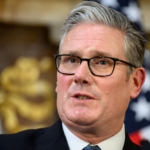
Ghana’s efforts to shield its public health policies from the commercial influence of the tobacco industry are facing a critical challenge, despite recording a slight overall improvement in a major global assessment.
According to the Tobacco Industry Interference Index 2025, the nation scored 55—a small improvement from its 2023 score of 58.
Globally, Ghana ranked 38th out of 100 countries and 11th out of 20 countries in Africa, reflecting moderate progress but exposing crucial governance and fiscal weaknesses.
The Tobacco Industry Interference Index 2025 evaluates how governments have protected public health policymaking from the commercial and vested interests of the tobacco industry in line with the World Health Organisation (WHO) Framework Convention on Tobacco Control (FCTC) Article 5.3.
Major Weaknesses: Lack of Transparency and Code of Conduct
Assessing the report and the terrain in Ghana, Vision for Accelerated Sustainable Development, Ghana (VAST-Ghana), has identified critical gaps in governance that leave policymakers vulnerable to subtle industry lobbying:
- Missing Code of Conduct: Ghana has failed to implement Section 18 of the Tobacco Control Regulations 2016 (L.I. 2247), which requires the Ministry of Health to issue a formal code of conduct for public officers, contractors, and consultants regarding interactions with the tobacco industry. This omission, VAST Ghana argues, weakens Ghana’s compliance with WHO FCTC Article 5.3 and exposes policymakers to “subtle lobbying and manipulation.”
- No Public Disclosure: Ghana currently lacks a formal, mandatory system requiring government officials to publicly disclose all interactions with the tobacco industry. Without transparent reporting, such engagements occur outside public scrutiny, undermining accountability and governance.
Fiscal Policy Contradicts Health Objectives
VAST-Ghana highlighted that the recent report on the index highlights a major contradiction between the government’s tax framework and its public health laws, which indirectly benefits the tobacco industry:
- Taxation of Banned Products: The Excise Duty Amendment Act 2023 introduced taxation on electronic cigarettes and e-liquids, even though these products are generally prohibited under the Public Health Act 2012 (Act 851), except for cessation purposes. VAST Ghana warned that this inconsistency “indirectly legitimizes the trade and consumption of banned products once duties are paid,” directly benefiting the industry at the expense of public health.
- Tax Exemptions: Existing fiscal policies, including duty-free import allowances, Free on Board (FOB) discounts, and ECOWAS-level exemptions, inadvertently make tobacco products more affordable, particularly to low-income groups and youth, countering the public health objective of price increases.
Industry ‘Harm Reduction’ Tactics Challenged
VAST Ghana also criticised the pervasive influence of industry-linked groups—specifically naming the Harm Reduction Alliance of Ghana and the Institute of Liberty and Policy Innovation (ILAPI)—which actively promote narratives around “tobacco harm reduction” through vaping and e-cigarettes.
These groups lobby for the tobacco industry to be included as a key stakeholder in policy discussions, an approach that directly violates the spirit of WHO FCTC Article 5.3, which calls for complete separation between public health authorities and tobacco industry actors due to their fundamental conflict of interest, VAST-Ghana Executive Director Labram Musah stated in a press release on November 14, 2025.
Policy Demands Ahead of Global Conference
Ahead of the eleventh session of the Conference of Parties on the FCTC (COP11) in Geneva, VAST Ghana issued six urgent policy recommendations to strengthen Ghana’s regulatory framework:
- Immediate Issuance of a Code of Conduct: The Ministry of Health must operationalise Section 18 of L.I. 2247.
- Mandatory Transparency: Government officials must be required to publicly disclose all interactions with the tobacco industry.
- Fiscal Revision: The Excise Duty Amendment Act 2023 must be revised to exclude e-cigarettes and e-liquids, aligning tax policy with the Public Health Act’s ban.
- Financial Disclosure: Mandate the tobacco industry to publish detailed financial data, including revenues, market share, tax exemptions, and incentives received.
- Regional Reform: Initiate reviews through ECOWAS to address regional fiscal measures that favor the industry (FOB discounts, duty-free privileges).
Labram Musah, Executive Director of VAST-Ghana, urged the government to act decisively, stating that the sustainability of Ghana’s health gains hinges on its ability to align its fiscal, legal, and public health policies against commercial interests.
- President Commissions 36.5 Million Dollars Hospital In The Tain District
- You Will Not Go Free For Killing An Hard Working MP – Akufo-Addo To MP’s Killer
- I Will Lead You To Victory – Ato Forson Assures NDC Supporters
Visit Our Social Media for More




